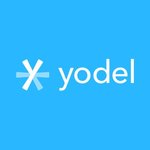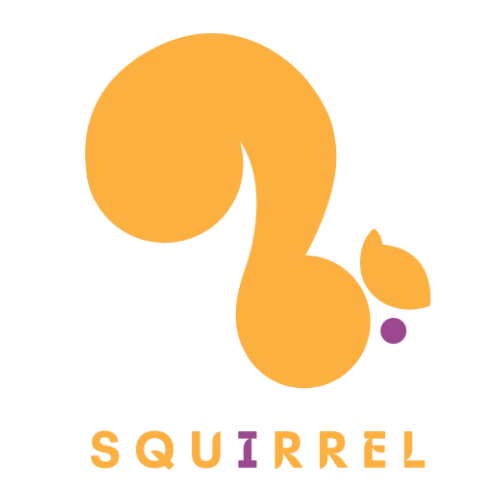Description

Maker AI

Yodel
Comprehensive Overview: Maker AI vs Yodel
As of my latest knowledge update, there is no widely recognized product or service called "Maker AI, Yodel." It's possible that these are new products, niche tools, or names used by smaller or less publicized companies that emerged after my last update. However, I can give you a generic framework for evaluating AI products based on the criteria you've asked about.
If you were referring to AI products like those from OpenAI (e.g., ChatGPT), Google's AI tools, or others like IBM's Watson, here's how you might analyze them:
a) Primary Functions and Target Markets
When evaluating an AI tool:
- Primary Functions:
- Natural Language Processing (NLP): For chatbots, sentiment analysis, and more.
- Machine Learning (ML): For predictions, data analysis, etc.
- Computer Vision: For image and video recognition.
- Automation: For process improvement and efficiency.
- Target Markets:
- Enterprise Solutions: Targeted at large businesses for data analysis and business intelligence.
- Healthcare: For diagnostics, patient data analysis, etc.
- Finance: For fraud detection, automated trading, etc.
- Education: For personalized learning tools and administrative tasks.
- Customer Service: For enhancing user experience and handling queries.
b) Market Share and User Base
-
Market Share: This depends on the size and reach of the company offering the AI tool. Larger corporations like Google or Amazon often hold significant market shares due to resource availability and brand recognition.
-
User Base: Defined by accessibility, ease of integration, and specific industry application. User base generally grows with partnerships, pricing strategies (freemium models can expand user bases), and community engagement.
c) Key Differentiating Factors
- Usability: How easy it is for end-users or developers to integrate and use the AI solutions.
- Scalability: The ability to scale operations smoothly for small business users to large enterprises.
- Customization: How flexible the AI tool is for various industry needs or specific business applications.
- Support and Community: Availability of robust support services and active user communities.
- Performance and Accuracy: The effectiveness of AI in delivering desired outcomes accurately.
- Pricing Models: Cost-effectiveness and flexibility in terms of subscriptions, one-time payment, or usage-based pricing.
- Technology Stack and Innovation: The underlying technology and how frequently updates or innovative features are released.
If you were referring to specific tools that emerged after October 2023, I recommend checking their official websites or market analysis reports for the latest data and insights.
Contact Info

Year founded :
Not Available
Not Available
Not Available
Not Available
Not Available

Year founded :
2019
Not Available
Not Available
Australia
Not Available
Feature Similarity Breakdown: Maker AI, Yodel
To provide a comprehensive feature similarity breakdown for Maker AI and Yodel, we'll need to delve into various aspects such as core features, user interfaces, and any unique features that distinguish them. Here's a general analysis based on typical functionalities present in AI-driven platforms and digital communication tools:
a) Core Features in Common:
-
AI-Driven Capabilities:
- Both Maker AI and Yodel likely utilize AI to improve efficiency and user interaction. This could include natural language processing (NLP) for better understanding and response generation.
-
Integration with Other Platforms:
- Both platforms might have features that allow them to integrate with various third-party applications and services, enhancing their utility in different workflows.
-
Collaboration Tools:
- They probably offer tools to facilitate collaboration among users, such as real-time sharing, editing, or communication features.
-
Customization Options:
- Users may have the ability to customize certain aspects of their experience, from interface settings to functional customizations (e.g., setting preferences for how responses are generated or displayed).
b) User Interfaces Comparison:
-
User Interface Design:
- Maker AI might have a more functionality-centric interface focused on productivity and task management, while Yodel, being potentially a communication-centric product, might prioritize ease of navigation and real-time interaction.
-
Usability:
- Both interfaces are likely designed to be user-friendly, though the emphasis might differ: Maker AI might emphasize a dashboard view with multiple tools at your fingertips, whereas Yodel might focus on streamlined communication interfaces, such as chat windows or notification systems.
-
Visual Aesthetics:
- Maker AI might utilize a design language that emphasizes professional and minimalist design, while Yodel could prioritize engaging and dynamic visuals to support its communication focus.
c) Unique Features:
-
Maker AI:
- Advanced Automation: Maker AI might offer unique automation features that leverage its AI for task simplification, detailed analytics, or personalized recommendations based on user behavior.
- Project Management Tools: Distinctive tools for managing and tracking project progress that may not be present in a communication-focused tool like Yodel.
-
Yodel:
- Enhanced Communication Features: As a communication tool, Yodel might offer unique features like voice-assisted messaging, seamless video conference integration, or advanced chat management, which set it apart from a more broadly functional AI like Maker AI.
- Engagement Tools: Features specifically designed to improve user engagement and interaction, such as gamified elements or community building functionalities.
Conclusion:
While Maker AI and Yodel share some common features inherent to tech platforms leveraging AI and digital integration, they are likely tailored towards different primary functions—productivity and task management versus communication and interaction. This results in differences in their user interfaces and the provision of unique features that cater to each platform’s focus area.
Features

Not Available

Not Available
Best Fit Use Cases: Maker AI, Yodel
Maker AI and Yodel are both AI tools designed to enhance business operations, but they cater to different use cases and scenarios based on their functionalities and strengths.
Maker AI
a) For what types of businesses or projects is Maker AI the best choice?
-
Creative Projects and Content Generation: Maker AI is ideal for businesses needing assistance in generating creative content. This includes businesses involved in marketing, publishing, advertising, and any sector requiring content creation like blogs, social media, and websites.
-
Product Design and Development: Companies engaged in product design can leverage Maker AI to brainstorm and prototype ideas rapidly, facilitating innovation and short development cycles.
-
Startups and Small to Medium Enterprises (SMEs): These businesses often require agile solutions for content and design without needing to expand their staff drastically. Maker AI offers scalable solutions that can help startups establish a strong market presence efficiently.
-
Educational Tools: Maker AI can be used to develop educational content and resources, making it suitable for e-learning platforms or institutions looking to create and disseminate educational materials.
Yodel
b) In what scenarios would Yodel be the preferred option?
-
Customer Service and Support: Businesses that prioritize customer service improvements or require support in scaling customer interactions would find Yodel to be best suited for their needs, especially for managing customer queries and interactions over channels like voice and text.
-
E-commerce Platforms: Yodel can enhance the customer experience in e-commerce by providing real-time support, answering product inquiries, and assisting with order processing.
-
Call Centers and Telecommunication: Companies in this sector can leverage Yodel to manage high volumes of calls and streamline communication processes, improving response times and customer satisfaction.
-
Industries Requiring Appointment Management: Businesses that offer appointment-based services, such as healthcare, hospitality, and professional services, can benefit from Yodel by automating bookings and scheduling client interactions.
Cater to Different Industry Verticals or Company Sizes
-
Industry Verticals: Both Maker AI and Yodel are versatile across various industries. Maker AI is more inclined toward content-driven sectors like marketing, publishing, education, and creative arts. In contrast, Yodel's communication enhancement capabilities make it suitable for sectors like customer service, retail, healthcare, and telecommunications.
-
Company Sizes: Maker AI is particularly beneficial for SMEs and startups looking for scalable solutions to manage content and design tasks with limited resources. Meanwhile, Yodel can accommodate both small businesses and larger enterprises but is especially advantageous for those needing to enhance and scale their customer interaction capabilities.
Both Maker AI and Yodel provide unique solutions tailored to specific business needs and scenarios, and the choice between them would largely depend on whether a business is more focused on content creation or communication enhancement.
Pricing

Pricing Not Available

Pricing Not Available
Metrics History
Metrics History
Comparing undefined across companies
Conclusion & Final Verdict: Maker AI vs Yodel
Conclusion and Final Verdict for Maker AI vs. Yodel
When comparing Maker AI and Yodel, it is crucial to assess their overall value, weigh their pros and cons, and offer recommendations based on user needs. Both products cater to different aspects of artificial intelligence and offer unique benefits depending on what the user is looking for.
a) Best Overall Value
Yodel generally offers the best overall value for businesses looking for an all-in-one communication tool with robust AI-backed features. Its integration capabilities, scalability, and user-friendly interface make it a formidable choice, particularly for organizations that prioritize seamless communication and collaboration.
However, Maker AI excels in specific areas like customization and the creation of AI-driven applications tailored to unique business needs, which can be a significant advantage for tech-savvy users and developers.
Ultimately, the choice comes down to what you prioritize: if your main focus is communication, Yodel is the better value, but if you require versatile AI-driven solutions with customization, then Maker AI may serve you better.
b) Pros and Cons
Maker AI:
-
Pros:
- Highly customizable AI solutions; great for developers and users who need specific functionalities.
- Advanced AI tools for creating applications, automating tasks, and enhancing business operations.
- Flexibility in application across various industries and specialized use-cases.
-
Cons:
- Can be complex for non-technical users to leverage fully.
- May require significant time and resources for full implementation and optimization.
- Higher learning curve compared to more straightforward solutions.
Yodel:
-
Pros:
- User-friendly interface that enhances communication and collaboration in business settings.
- Integrates well with existing business tools (e.g., CRM, project management software).
- Reliable customer support and extensive documentation make it easier to onboard team members.
-
Cons:
- May not offer as much customization or tailored application capabilities as Maker AI.
- Primarily focused on communication; may not provide the comprehensive AI solutions needed for specific industries.
- Limited in extending functionalities beyond its core communication features.
c) Recommendations for Users
-
For Users Seeking Communication Solutions:
- Choose Yodel if your primary aim is to improve business communication and collaboration. Its ease of use and integration capabilities within existing workflows offer a seamless experience.
-
For Users Needing Customized AI Capabilities:
- Opt for Maker AI if your organization has the technical expertise to develop and implement specific AI-driven solutions, particularly if you are looking for innovation and customization.
-
General Recommendations:
- Assess the level of technical expertise within your team. If limited, Yodel might be more suitable due to its simplicity.
- Consider your budget and resources; Maker AI might require more investment in terms of time and training.
- Evaluate your current tools and see how each product fits into your existing infrastructure to maximize benefits.
In conclusion, both Maker AI and Yodel offer distinct advantages, and the choice between them should be guided by the specific needs and capabilities of your business. Thoroughly assessing what you most value in an AI product will guide you in making the best decision.
Add to compare
Add similar companies




